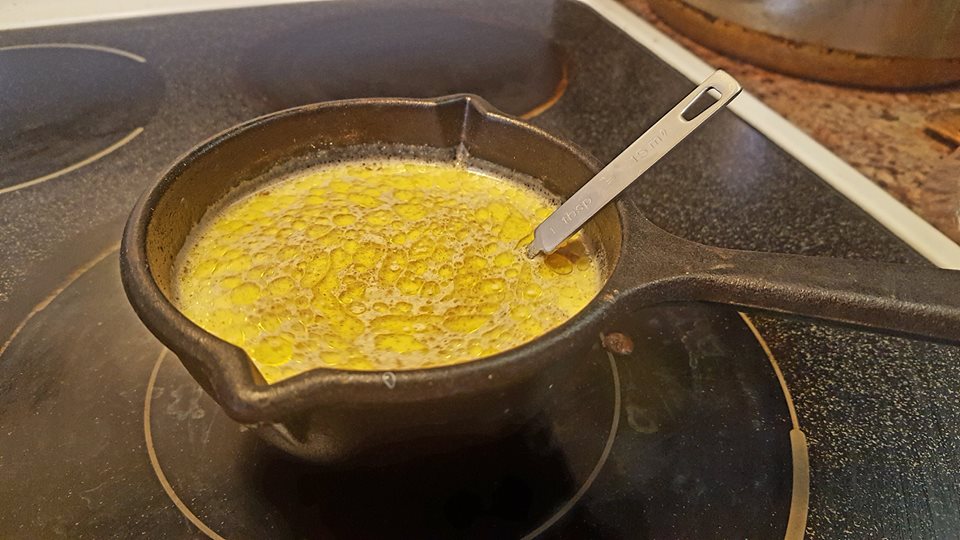In Ayurveda, Vata dosha is characterized as “dry, light, mobile, subtle, rough, hard, changeable, and clear.” Sounds a lot like Fall, doesn’t it? The leaves dry out and a cool, dry wind blows them away, the days become colder and shorter, the air is more subtle and changeable. In Ayurveda, Fall is the Vata time of year, a time when Vata predominates in the world around and within us. It is a time to pacify the Vata in our bodies and minds with grounding, warming, nourishing herbs and foods.
One classic method for pacifying Vata dosha is to decoct nutritive herbs and spices in warm milk. These decoctions are often made with adaptogens to replenish burned-out adrenals and rejuvenate the body and spirit on a deep, lasting level. You may have heard of the “Golden Milk” formula, utilizing the Turmeric herb and other nutritives. Smile’s Yogi Tea blend consists of Cinnamon, Cloves, Cardamom, Ginger, and Black Pepper, and it is usually taken with milk.
Some of the traditional herbs for milk decoctions, such as Ashwagandha and Shatavari, are fat-soluble; their medicinal properties are most effectively released in a fatty medium such as milk and ghee. The moisturizing, grounding nature of high-quality fats is pacifying to Vata dosha on a deep level.
One of my favorite ways to make these decoctions is to use a small cast-iron melting pot, but any kind of pot or pan will do. Here is a simple recipe to get started:
Ingredients:
1 teaspoon Ashwagandha powder
1 teaspoon Shatavari powder
1/2 teaspoon Cinnamon powder
1/2 teaspoon Cardamom powder
1/2 teaspoon Ginger powder
1 teaspoon Ghee
2 cups of milk (any kind milk you prefer will do, although fat-free varieties are not recommended)
Raw honey to taste
Directions:
Combine all the ingredients in a small saucepan.
Heat the mixture until the milk is steaming, but do not bring to a boil.
Stir gently and allow mixture to decoct for 10-15 minutes over low heat.
Remove from heat and add the honey.
Sip slowly in a peaceful location.
These measurements given above are flexible guidelines. Find the herbs that appeal most to you and create your own unique recipes. Once you find a favorite combination of herbs, you can combine the them into a single jar for ease of use. Powdered herbs are very convenient, but non-powdered herbs will work just as well for these recipes.
Here are just a few herbs to consider using in milk decoctions:
Ashwagandha: Replenishes the adrenals, promotes stamina, vigor, vitality, restorative sleep patterns, and emotional flexibility. Nourishing to the kidneys and toning to the reproductive tissues.
Shatavari: Tones and moisturizes the reproductive tissues. Promotes strength, cognitive function, joy, youthfulness, fertility, memory, and intelligence.
Reishi: Immune-strengthening, anti-inflammatory adaptogen with a warm, earthy flavor. Classic herb for nurturing longevity, cognitive function, and cellular integrity.
Maca: A great recovery herb for times of stress and fatigue. Replenishes energy and vitality, grounds Vata and nurtures the kidneys. Has a sweet flavor.
Astragalus: An immune-enhancing, nutritive, warming adaptogen with a pleasant taste. Also great in soups!
Holy Basil: Relieves stress in body and mind, promotes peaceful meditation, protects against radiation, enhances immunity and healthy metabolic function.
Hawthorn: Protects the heart, grounds and supports the grieving process, strengthens and regulates the heartbeat, calms the nerves, supports digestion.
Ginger: Warming, pacifying to Vata, improves circulation and absorption, stimulates digestion, detoxifies the digestive tract, spreads warmth throughout the body.
Cinnamon: Sweet, warming, strengthening to the kidneys, supports the digestive fire.
Cardamom: Adds delicious flavor, stimulates the digestion, guards the respiratory system against infection, and brings clarity and joy to the mind.
Black Pepper: Warms the blood, boosts circulation, detoxifies, stimulates digestion and immune response, and increases absorption of other herbs in the body.
Other herbs to consider are Fennel, Cloves, Pippali, Coriander, Fenugreek, Nettle, Arjuna, American Ginseng, Sarsaparilla, and Turmeric
For respiratory health, consider using Elecampane and Osha
Ayurveda cites Vata excess as the root of most physiological and psycho-spiritual problems that we face in the world and in our daily lives. As we move into the Fall season, take some time to prepare and savor a sweet, warming milk decoction full of nurturing, grounding herbs. Even better, share with a friend and enjoy the sweetness of community along with the sweetness of the herbs. On a cool, windy night, there’s nothing better!









